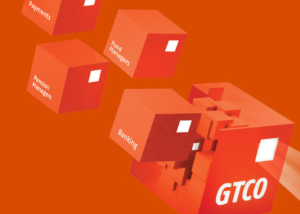
…as UN engages media, stakeholders on ways to end menace in Sokoto
Gbolahan Salman Sokoto
At least a total of one hundred and fifty one Sexual and, Gender Based Violence, SGBV survivors were rescued by the National Agency for the Prohibition of Traffick in Persons NAPTIP in Sokoto state between January and June this year.
A top official of the agency, Hassana Mikaillu, says one hundred and three (103) of these survivors are girls while the remaining forty eight (48) of them are boys, which they all survive one form of abuse or the other.
She revealed this during a panel discussion at the opening of the dialogue, saying the abuses range from sexual assault, unnatural offences, child labour, child trafficking, molestation and other emotional and physical assault of the children.
According to her, most of the survivors have since been reunited with their parents after rehabilitation.
She described pressures and interference from highly placed individuals as parts of the challenges facing the organization in the discharge of it’s responsibility.
She however, commended Sokoto state governor Aminu Tambuwal who have severally giving the organisation the needed support to carry out their assignment with a particular mention of his role in executing a sexual assault case in the state.
Meanwhile, UN has collaborate with media practitionals and other relevant stakeholders on how to bring an end to sexual and gender based violence against women and children in Sokoto State.
This programme supported by Spotlight Initiative includes a four days media dialogue has other important stakeholders which includes NAPTIP, National Orientation Agency (NOA), Nigerian Security and Civil Defence Commission (NSCDC), Ministry of women affairs among others in the state.
The forum called on general public to jointly put in efforts and stop violence against women and girls in the society, which was described as barbaric and unacceptable in the society
Ealier in his remarks, Mohameden Fall, the chief field officer of UNICEF, in the state said he was particulary excited about the meeting because of the caliber of those present who are committed to promoting the well-being of women and giris in Sokoto State.
He said on the importance of the media institutions in the development of any society or community cannot be neglected. “You are the guarantors of the moral and ethical values of this society. For this purpose, no initiative dealing with well-being and benavioral change can be without your support.
“We are in a situation where the rate of violence against women and children, mainly girls, is increasing A national study on violence against children has shockingly revealed that before the age of 18, 6 out of 10 children were victims of some form of violence. 1 in 4 giris and 1 in 10 boys are victims of sexual violence and the majority of children report multiple incidents.
” It also reveals that children do not speak, seek or receive services. In other words, less than 6% of Chidren who are victims of sexual or physical violence have asked for help and less than 5% of those who have asked for help are receving help.
‘The fight against violence against the most vulnerable groups requires a collectve effort impossible to achieve without the Support of media institutions. You play a vital role in ensuring that social norms and practices that are harmful to women and children are eradicated or reduced to a minimum.
“The United Nations initiative in the spotlight is pleased to work with you to end this threat of violence against women and children. Spotight Initiative in Nigeria and Sokoto aims to support a Nigeria where all women and girls are free from violence and harmful practices.
“The vision will be realized by addressing the links between sexual and gender-based violence and harmful practices with related aspects of sexual and reproductive health and rights as a cross-cutting theme. The united Nations will focus on addressing the root causes of gender-based violence and harmful practices against women and giris; and ensure access to inclusive, timely and quality services for victims



